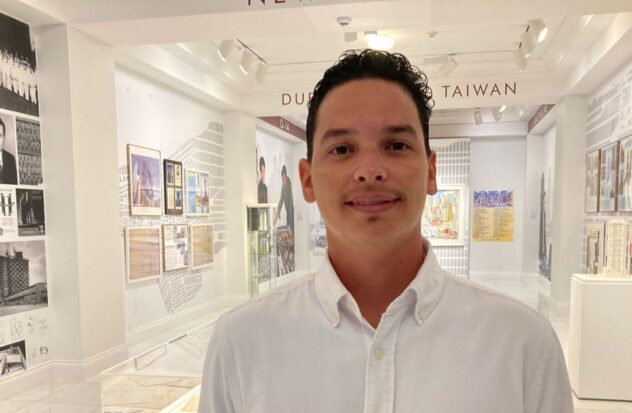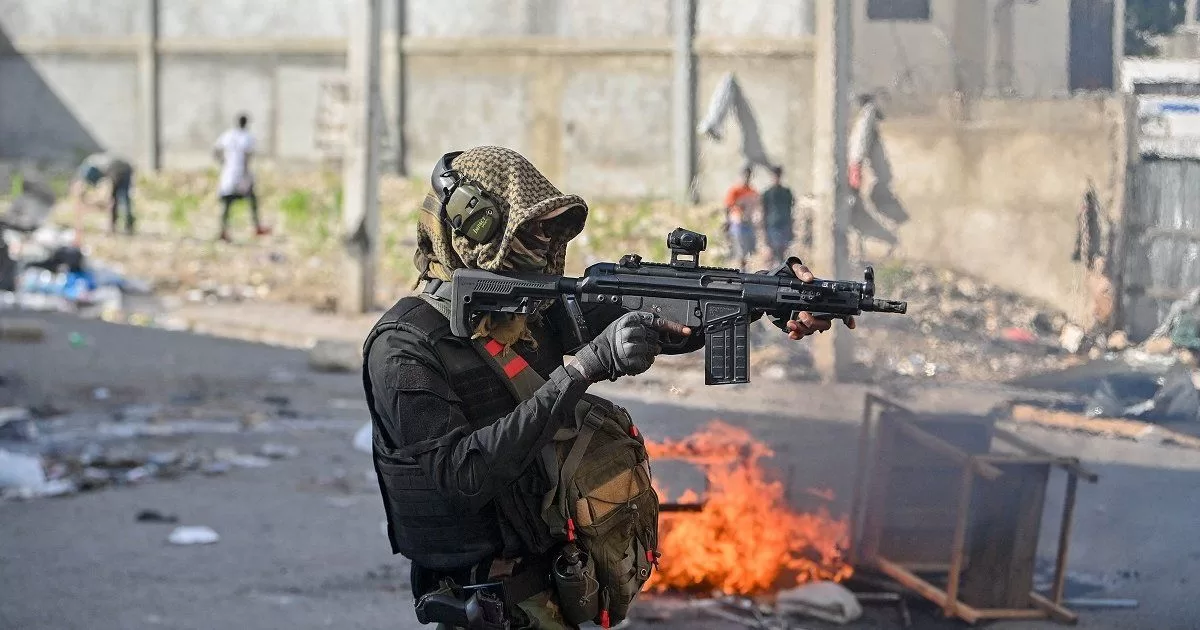Every August 23, remembering that of 2022, is for my family and me a kind of Freedom Day. Something like the 4th of July for the American nation. It does not have the same implications, I know, that a country signs its Declaration of Independence from the British Empire, as that of a couple and their son disembarking on a Havana-Miami flight to request political asylum. But after almost a decade of doing journalism outside the totalitarian Cuban State, arrests, threats of prison and death, I felt a fresh air on my face, like Washington crossing the Delaware River.
At 32 years old, Cuban who had lived his entire life under Castroismhad something clear. The first homeland is the Family. In Christian ethics, it is the first ministry. For those who live in a country diluted by Socialism, it constitutes the immediate refuge. Building a strong family, with compassion and values, is a good way to make the community and the nation better. And wherever there was a family, there was a homeland for expatriates.
Living in the United States brought about changes. Football is soccer, kilometers are miles, Celsius is Fahrenheit.
Time, or rather the value of time, has changed. In freedom, because there is hope, time is money. How much is your time worth? So many dollars an hour. Here your hours are worth something, the same hours that in the centralized socialist economy someone could waste in queues and unproductive and counterproductive activities such as acts of revolutionary reaffirmation or volunteer work. In freedom time passes quickly, but slowly where there is no hope.
Freedom can be understood by some as a spatial issue: getting away from the regime that promotes slavery y natural law destroyedOn the other hand, my compatriot José Martí stated, gnostically, that “being cultured is the only way to be free.” I believe that freedom is in the sum of both scenarios, the spatial and the interior, because we are flesh and spirit at the same time, the soul and the body cannot be separated.
If he fate For the emigrant, it is to start over, for the Cuban, it is to be reborn. Learning to drive between honking horns and monstrous avenues, managing life digitally and efficiently, rearranging your possibilities in a labor market and a country that opens its arms, but to which you have not yet contributed a minute or a dollar in your life.
It reminds me of the stories of former ministers of the Republic who, arriving in Florida in the 1960s, ended up as elevator operators; doctors as gardeners; businessmen cleaning floors. It is a great honor to all of this, with the culture of effort that made Cuba great, and with the American freedom that allowed them to rebuild their lives until they got ahead or put their shoulders to the wheel so that their children and grandchildren could achieve success in the new society.
Mine is one more story in that growing chorus of Cuban exiles, a dead body that will leave only anecdotes, but will build a corner for the next generations of exiles.
When I arrived in Miami, I worked in whatever came up. This country owes me nothing and I owe everything to my family. I met the most diverse range of people cutting grass and hearing stories of giant Burmese pythons on a farm in the Red Lands, stacking fruit, moving clothes, carrying high-impact windows (which tire the strength of even the most willing men before they can withstand hurricanes), laying carpets in warehouses, giant rolls that weighed as much as two men, with a Guatemalan, his teenage daughter and a forty-something Venezuelan woman.
The young girl arrived in the United States on a scholarship, but she had no qualms about helping her father, strengthened by years of hard work. A lot of effort, no Instagram or Tik Tok. People like that inspire.
The Venezuelan woman talked at length about the Chavista disaster while shredding chicken at lunchtime. Learning and friendship made up for the knee pains that the job imposes on newbies. Decent people are good company.
For me, being reborn to freedom also meant understanding the credit system, with its cards and credit scores, bank loans, health insurance, tax processing that was simply taken away from you under Socialism. Adjusting to the new calendar that the family in Miami will lovingly show and the habit of decorating: Halloween, Thanksgiving, Christmas, St. Patrick’s Day. Receiving postal mail (what a surprise!), not standing in line for ten hours in front of a store without food or medicine, hoping that something will sell.
Miami, in addition to its transformation into a megacity that expands every day, with its chaos and its evils, is also a symbol where millions continue to find a future.
The Cubans made a refuge for themselves here, but with a view to the south, beyond Cayo Largo, where the road ends, threading the islets together like shells on a necklace. Cuba is their dream, but while waiting they gave the world the great metropolis of the exiles. The lakes everywhere, tamed in gentle shapes, remind us that men with initiative and in a climate of freedom can turn a swamp into a wonder.
In Miami there is a survival of Cuban culture. From the pastelito de guayaba, the tamal, the congrís, the materva, the brands of nostalgia, to writers ousted by Socialism, festivals of the stolen country, monuments to its heroes of yesteryear and to modern patriots.
If for some, building the city has been their offering to freedom, for me it has been taking care of my family.
The contradiction of founding and letting go, loving what is founded more than oneself and watching over its height with hope and trembling describes the restless backwater of the family.
Before my wife and I fell in love, our son did not exist. When we fell in love, that peaceful volcano that changed our lives emerged. The new stem made the whole tree green again, from the flower on its forehead to the embraced roots of two different worlds.
The happiness of the child is now cardinal. Not essential or primordial, but cardinal: it guides and gives certainty to guide and educate. Our happiness, to a large extent, is more directed towards him enjoying the sea than walking along the shore holding hands; towards him running, jumping and singing, than dancing and going to the movies.
He is another bridge that connects our hands through his. He does not dismember our union, he strengthens it; he does not impoverish the happiness we have treasured, he expands it to a new area that was not there before him, that was born when we knew that he was a flash of life within another life.
This fragile connection between vertex and vertex produces in the family a strength that can withstand anything: that of sacrifice. We know that the one who loves is fragile, human in falling and succeeding, getting up and making mistakes, and that one’s own life, also fragile, must come first to protect that of the other. Life for life. It has been done, and so parents, brothers and grandparents will do until the end of days.
*From a text that appeared on the author’s Facebook profile in June 2022, converted into a brief commentary for the Palabra Viva publication in December of that year.



